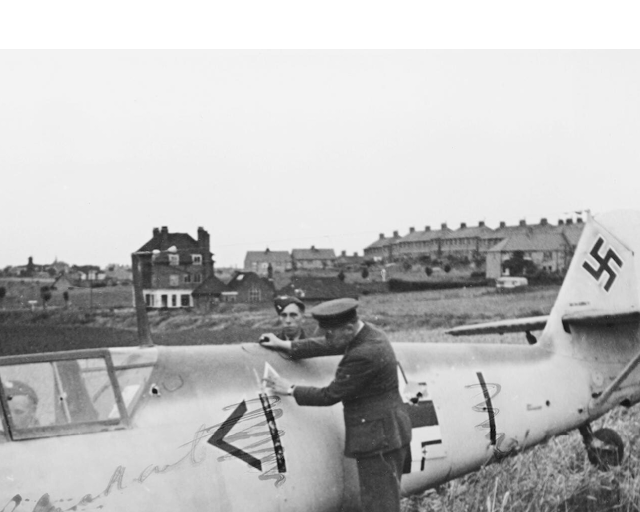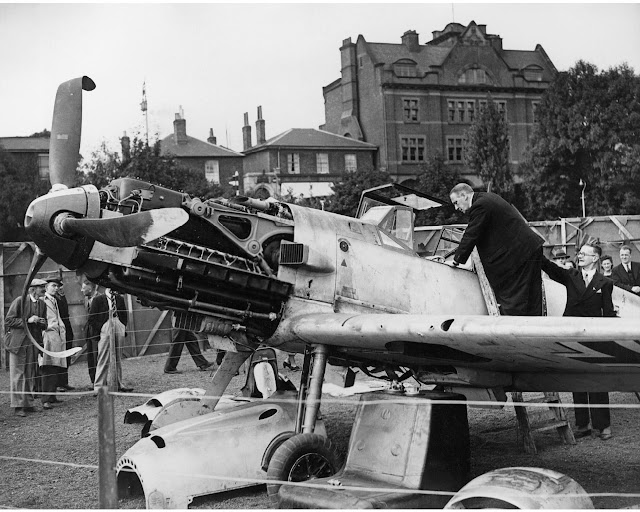While poking around in the RAF Manston history museum over the weekend I came across these photos of Oblt. Werner Bartels' Bf109 E-1. Oblt Werner Bartels, Technical officer of III./JG 26, was shot down by a No.65 Squadron Spitfire over Dane Valley, Margate on 24 July 1940 and taken captive. The rather grainy shot above shows the Dane Valley Arms pub in the background. The pub was originally built as a railway hotel - although the railway station was never built. As for Bartels, his story doesn't end there because in 1943 he was repatriated in a prisoner of war exchange and later became an engineer on the ME 262 programme.
The Emil WNr is 6296F. The 'F' stands for "flugklar" or 'airworthy' as in 'repaired to airworthy status'. The retrofitted later style canopy is of interest as is its dark finish.
It appears as if the framing has been finished in a different shade to the surrounding fuselage paintwork. While it is generally believed that Emil cockpit colours were finished in the standard 02 Grau during the summer of 1940 it is argued by some Experten that here the windscreen and retro-fitted 'later' style canopy are finished in the darker grey RLM 66. The cockpit itself appears in the same dark colour - although late July is usually considered to be far too early for an RLM 66 interior.
Examples of Bf 109s that had successfully force-landed in England were exhibited in dozens of towns and cities across the country during the summer of 1940. Bartels' Emil was put on display in Croydon (south London) later that summer (below). More than 90 Emils made successful force landings in the UK during 1940, although some seven of these were partially or wholly destroyed by fire and a number were stripped and appraised at Farnborough. Bartels' machine was one of two that force landed on 24 July 1940.
Above; previously unpublished shot which clearly shows the yellow rudder and wing camo scheme - Bartel's machine was one of the first examples of an Emil to have been noted with an area of yellow paint on the airframe.








